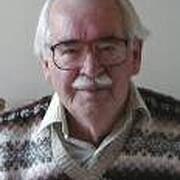John Rowe Townsend (1922–2014)
Author of Written for Children: An Outline of English-Language Children's Literature
About the Author
John Rowe Townsend was born on May 19, 1922. He received an English degree from Emmanuel College. After graduation he decided to pursue journalism and worked briefly on the Yorkshire Post and Evening Standard. He worked at the Manchester Guardian as a subeditor and art editor, and was editor of the show more Guardian Weekly from 1955. Even though he left the paper in 1969 to become a full-time writer, he remained children's books editor until 1978 and a columnist until 1981. He founded the influential Guardian children's fiction prize. His first novel, Gumble's Yard, was published in 1961. His other novels include Noah's Castle, Good-Night, Prof, Love, and Cranford Revisited. The Intruder won the Boston Globe-Horn Book Award and the Edgar Award for juvenile mystery. He also wrote non-fiction books including A Sense of Story and edited Trade and Plumb-Cake for Ever, Huzza! He died on March 24, 2014 at the age of 91. (Bowker Author Biography) show less
Series
Works by John Rowe Townsend
Associated Works
Tagged
Common Knowledge
- Legal name
- Townsend, John Rowe
- Birthdate
- 1922-05-10
- Date of death
- 2014-03-24
- Gender
- male
- Nationality
- England
UK - Birthplace
- Leeds, Yorkshire, England, UK
- Places of residence
- Leeds, Yorkshire, England, UK
- Education
- Leeds Grammar School, Leeds, England, UK
University of Cambridge (Emmanuel College) - Occupations
- children's book author
academic - Relationships
- Walsh, Jill Paton (wife)
- Awards and honors
- May Hill Arbuthnot Lecturer (1971)
Members
Discussions
About people called "creatures"? in Name that Book (October 2020)
Reviews
Lists
Awards
You May Also Like
Associated Authors
Statistics
- Works
- 37
- Also by
- 11
- Members
- 751
- Popularity
- #33,866
- Rating
- 3.4
- Reviews
- 13
- ISBNs
- 182
- Languages
- 5























Set apparently in Manchester, where the kids are temporarily abandoned by the rather inadequate adults supposedly looking after them. They make a much better job of looking after themselves, being bright, resourceful and loyal, even defeating a gang of crooks into the bargain.
The typical blockish, scratchy illustrations of the time are in this case a letdown though, being quite ugly and making the characters look unnecessarily glumpish.… (more)